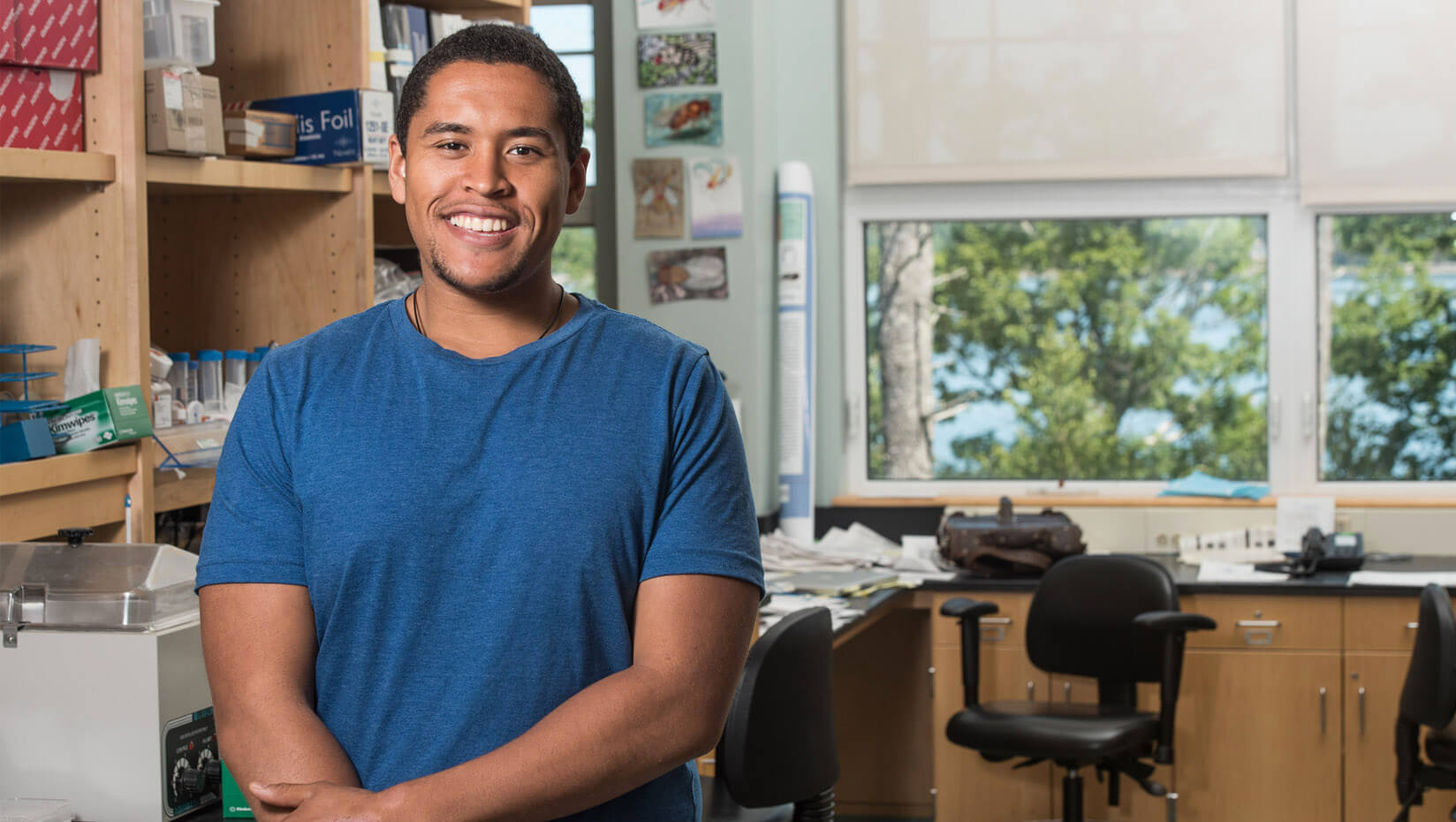
UMaine, UMM students conduct biomedical research during summer program
Thirty-two summer fellows, including five University of Maine students and one University of Maine at Machias student, participated in the MDI Biological Laboratory 2017 summer fellowship program.
The program provided undergraduates with hands-on research training in an advanced laboratory environment. On-campus co-curricular and residential life programs extended the impact of the programs, helping students develop professional skills and foster connections within the research community.
Each student worked with a faculty mentor and other researchers on a specific research project in the biomedical field.
Maine INBRE, a network of 13 educational and research institutions led by the MDI Biological Laboratory, supported 20 of the summer fellows. The aim of Maine INBRE, which is funded through the National Institutes of Health, is to create a biomedical training and research ecosystem for Maine to catalyze innovation and drive the creation of 21st-century jobs for Maine students. The MDI Biological Laboratory has trained more than 2,100 students since the program’s inception in 2001.
UMaine and UMM students funded through the Maine INBRE program were:
Rebecca Fernandez, Monmouth, Maine; University of Maine at Machias; research site: Bowdoin College; mentor: Patsy Dickinson, Ph.D., Josiah Little Professor of Natural Sciences, Bowdoin College; research topic: A comparative study of the stomatogastric nervous system in related crab species Pugettia producta and Libinia emarginata;
Callie Greco, Greene, Maine; University of Maine Honors College; research site: University of Maine; mentor, Kristy Townsend, Ph.D., assistant professor of neurobiology, University of Maine; research topic: Tanycyte plasticity in the hypothalamus with the regulation of energy balance; and
Laura Paye, Westfield, Massachusetts; University of Maine Honors College; research site: University of Maine; mentor: Rebecca Van Beneden, Ph.D., professor of biochemistry and marine sciences, University of Maine; research topic: The effect of embryonic arsenic exposure on the sensorimotor behavior of zebrafish (Danio rerio).
Students funded through the National Science Foundation’s REU (Research Experience for Undergraduates) program were:
Stephan Jackson, Bingham, Maine; University of Maine; mentor: Vicki P. Losick, Ph.D., assistant professor, MDI Biological Laboratory; research topic: Determining the role of myosin in wound-induced polyploidization; and
Matthew Oberholtzer, Cape Elizabeth, Maine; University of Maine; mentor: Vicki P. Losick, Ph.D., assistant professor, MDI Biological Laboratory; research topic: A study of cilia importance in zebrafish heart regeneration
One UMaine student was an undergraduate summer fellow at the MDI Biological Laboratory:
Isaiah Mansour, Fairfield, Connecticut; University of Maine; mentor, Kevin Strange, Ph.D., president and professor, MDI Biological Laboratory; research topic: Red abalone hemocyanin as an alternative hapten carrier for vaccine.
“The summer fellowship experience gives students a leg up in their careers,” says Jane E. Disney, Ph.D., director of education at the MDI Biological Laboratory.
“Not only do they gain valuable laboratory skills, they also get a sense of what working in a research laboratory is like and forge connections with faculty members and fellow students that will be maintained throughout their careers. In addition, these programs create the skilled workforce required to support the science and tech sectors of the economy.”
